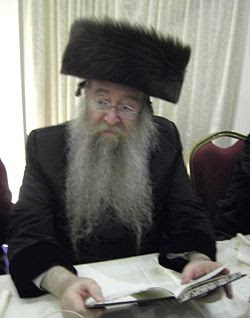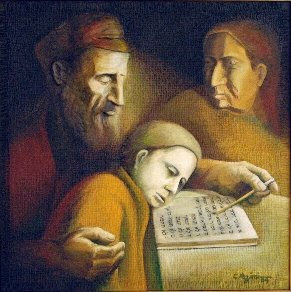
My Dear Fellow Jew,
On Wednesday night I logged onto Reuters on my Blackberry and I saw
something about terrorists in Mumbai. No connection to me. Or so I thought.
The next morning the news slammed home when my chavrusa told me that his
cousin is the Chabad shaliach in Mumbai and that there was some kind of
attack and they can't seem to get him on the phone.
For the next 24 hours I, my family and everybody I know had only one thing
on our minds - the fate of the Chabad shaliach, his wife and the unknown
number of hostages inside the Chabad house.
Information was so conflicting. We tried to make sense of it all, grasping
at straws, hoping against hope that somehow, somehow they would come out
alive. And we davened. Hundreds of thousands of Jews. We all poured out
our hearts in Tefilah in every country, city, neighborhood, yeshiva, shul
and home. An unprecedented outpouring of Tefillah.
And then the news came that the counterattack had begun and commandos were
storming the building. How we sat on edge, imaging in our mind's eye the
commandos fighting room to room…through the bullets and the explosions…
And while all this was going on I thought to myself…
"Ribono Shel Olam, look at your amazing people. Hundreds of thousands of
people gripped by fear, davening for people they never knew and from
sections of Klal Yisrael that they don't belong."
Last Thursday it didn't matter if you were Chabad, Bobov or Toldos Avrahom
Yitzchok. OUR brothers were in that house and we reacted instinctively -
with the love of brother.
And so I wonder, my dear brothers and sisters:
Imagine we could always be this way!
…Imagine we walked in the street and gave a smile and a Sholom Aleichem to
every Jew, even if he didn't look like we did.
…Imagine there was a way we could hold onto the incredible Ahavas Yisrael
that was displayed this past Thursday, that showed we are one nation!
Yes, I know. I realize it's not so simple because tragedy has a way of
uniting people – but it's not impossible! Consider this:
If there wasn't Ahavas Yisrael in our hearts in the first place we wouldn't
have reacted so powerfully and instinctively with nonstop Tehillim…We
woudn't have listened to the news 20 times that day!
If we can just shake loose of the yetzer hora that pushes us to be
divided…If we just took a good look in the mirror we would see that under
that tough exterior we are all really Ohevi Yisrael - lovers of Jews.
My Rav spoke about Mumbai yesterday. He quoted an excerpt from the sefer
Amud HaAvodah. This is a quote from the sefer:
"It is a fact that when Yidden in one city hear that tzaddikim in another
city have been tortured and killed by gentile murderers, the Yidden in the
first city are certain to be terribly pained and anguished. Even if they
had never known them. Even if they had never seen them. Their hearts ache
upon hearing of Jews killed with cruelty.
This phenomenon is rooted in the unity of the souls of the Jewish people.
This is indeed a proof to the existence of this unity.
And so now the horrific truth of what happened in India has become revealed
to the world. My brother died in that Chabad house as did yours…
…and the immense Ahavas Yisrael that we Jews have for each other was
revealed - to the world, and more importantly to ourselves!
But we must not let this event slip by like a ship in the night!
Let's each make a kabalah – a personal resolution - that starting right now
we and our family will take something on that shows we care about every
single Jew.
Not just lip service - but a real goal. One that we write down and post in
our house, tell our friends about, and monitor weekly to see how we're
doing.
For instance:
…Maybe we should work on the way we greet tzedakah collectors at our door –
you know, put ourselves in their position of having to knock on a
stranger's door…
How we would we like people to greet us?
…Or maybe to really daven for specific people from our shul for their
childrens shidduchim or livelihood. And certainly to work on not speaking
loshon hora about individuals and certainly not sections of Klal Yisrael.
Hashem thrust the kedoshim who died in India on the stage of Jewish history
for a few days last week. But their impact can last a lifetime i f w e a
c t!
The last few months have seen major calamities befall the world at large.
They are affecting – and could further affect - Klal Yisrael very
profoundly.
Let each Jew as an individual and as a family take on one resolution - a
single kabbalah - of Ahavas Yisrael, so that in these trying times Hashem
will look down at us and see the love we have for each other. The love
that proves we're a family. His family. And with that impetus may Hashem
redeem His children from all the tzoros and bring us, as the one family
that we are, to our home in Yerushalayim.
Let's just do it NOW! Please pass on this letter to as many people as
possible so together we can keep the flame of Ahavas Yisrael burning.
With a sad but hopeful heart,
Chofetz Chaim Heritage Foundation






























נָשֹׂא אֶת-רֹאשׁ בְּנֵי קְהָת מִתּוֹךְ בְּנֵי לֵוִי לְמִשְׁפְּחֹתָם לְבֵית אֲבֹתָם
(במדבר )
There is an amazing occurrence involving this weeks Parsha. Naso is the longest containing 176 Pesukim. The longest Perek in Tehillim has 176 Pesukim, and Baba Basra, the longest Masechta in Shas, has 176 Dafim. What is the significance of this recurring number? Rav Isbeeז"ל answers there are 22 letters of the Aleph-Beis. This number represents Torah. The natural world (Teva) is always in sevens: there are seven days of the week, there are also Shivas Minim, seven continents, seven notes on a musical scale, and last but not least, the seven seas. Accordingly, eight always represents the world beyond nature (L’maaleh Min HaTeva). Now we uncover the secret of the number 176. When you take the Torah (represented by 22) and multiply by L’maaleh Min HaTeva (numerically 8) it equals 176. Through this number, Hashem is showing us that the Torah is above other studies, it is L’maaleh Min HaTeva.
דבר אל בני ישראל ואמרת אלהם איש או אשה כי יפלא לנדר נדר נזיר להזיר לה'
(במדבר ו:ב)
The Torah describes a Nazir as one who separates himself from worldly pleasures, specifically refraining from consuming wine products and haircutting, in order to attain an elevated spiritual level, greater Kedusha. The Gemara in Nedarim, addressing a person seeking spiritual ascension through acceptance of optional fasting, writes כל היושב בתענית נקרא חוטא. It would seem natural for a person climbing the spiritual ladder to take an active role in reaching his goal of spiritual growth, why then, does the Gemara view it so negatively? The Ostrovtze Rebbe provides profound insight into the true intent of the Gemara's statement. The Gemara is not condescending to one who seeks spiritual elevation through abstinence of worldly pleasures. The words are כל היושב literally translated as “one who sits,” meaning he tortures himself needlessly. He is physically refraining from Hashem’s gifts, yet since the message is not absorbed, is considered spiritually inactive, a יושב. Only in such a case is the Gemara critical and stating that he is נקרא חוטא.
שְׁלֹשִׁים וּמֵאָה הַקְּעָרָה הָאַחַת כֶּסֶף וְשִׁבְעִים הַמִּזְרָק הָאֶחָד כֹּל כֶּסֶף הַכֵּלִים אַלְפַּיִם וְאַרְבַּע-מֵאוֹת בְּשֶׁקֶל הַקֹּדֶש כַּפּוֹת זָהָב שְׁתֵּים-עֶשְׂרֵה מְלֵאֹת קְטֹרֶת עֲשָׂרָה עֲשָׂרָה הַכַּף בְּשֶׁקֶל הַקֹּדֶשׁ כָּל-זְהַב הַכַּפּוֹת עֶשְׂרִים וּמֵאָה.
The Torah tells us that each Nasi brought a set of gifts to the Mizbeach. For what reason does the Posuk mention only the Keilim that held the gifts but omit the seemingly more essential contents of these containers? Furthermore, conversely, regarding the ladles full of קְטֹרֶת that the Nessim offered, we find explicit mention of the contents of the ladles! What is the reason for this apparent dichotomy? The answer requires a brief refresher in Hilchos Kodshim. There is a Halacha instructing that anything made hekdesh/consecrated must be offered on the same day. Violation of this edict results in Lina and the expired offerings become Pasul. Accordingly, the Brisker Rav directs our attention to the גמרא שבועת דף יא. stating that the din of Lina does not apply to the consecration of incense. Knowing this, the Nessiim were not hesitant to preload the incense into the ladles. However, as the Nessiim correctly suspected, Hashem dedicated an entire day to the gifts of each Nasi. Had the Nessiim arrived all at once with their gifts prepackaged, all of the offerings except for those of the one Nasi awarded the first day would fall into the category of Lina and consequently become Pasul. With this in mind, they arrived with the containers for their gifts but left the gifts separate. Only when it was their special day for presenting gifts did they add the gifts to the baskets they had prepared prior.